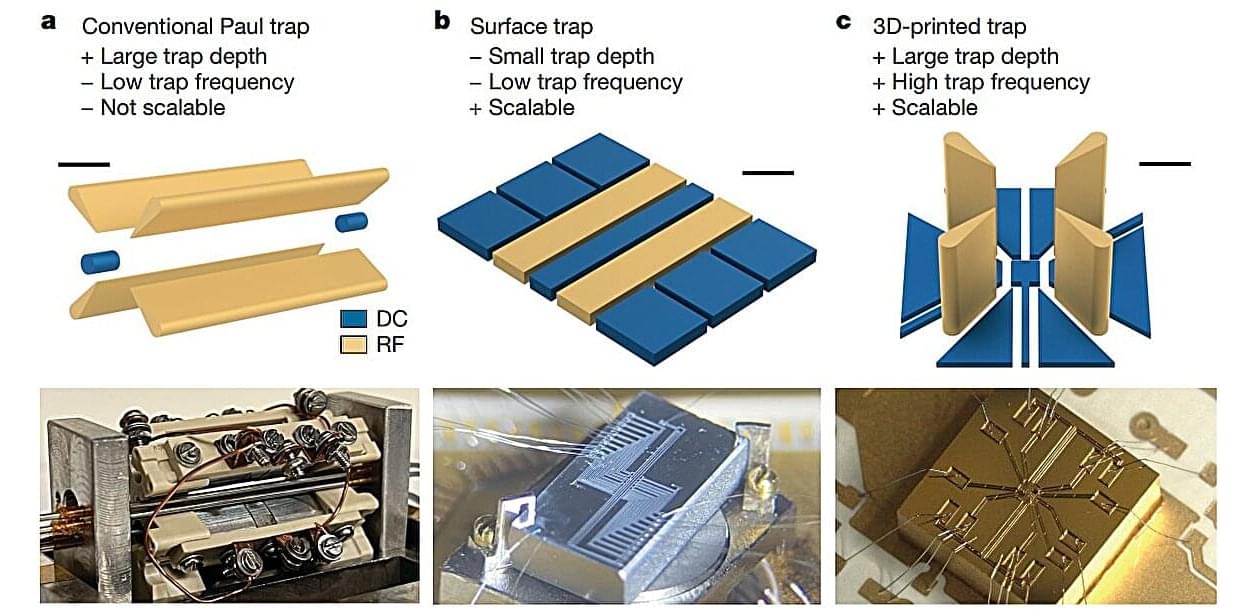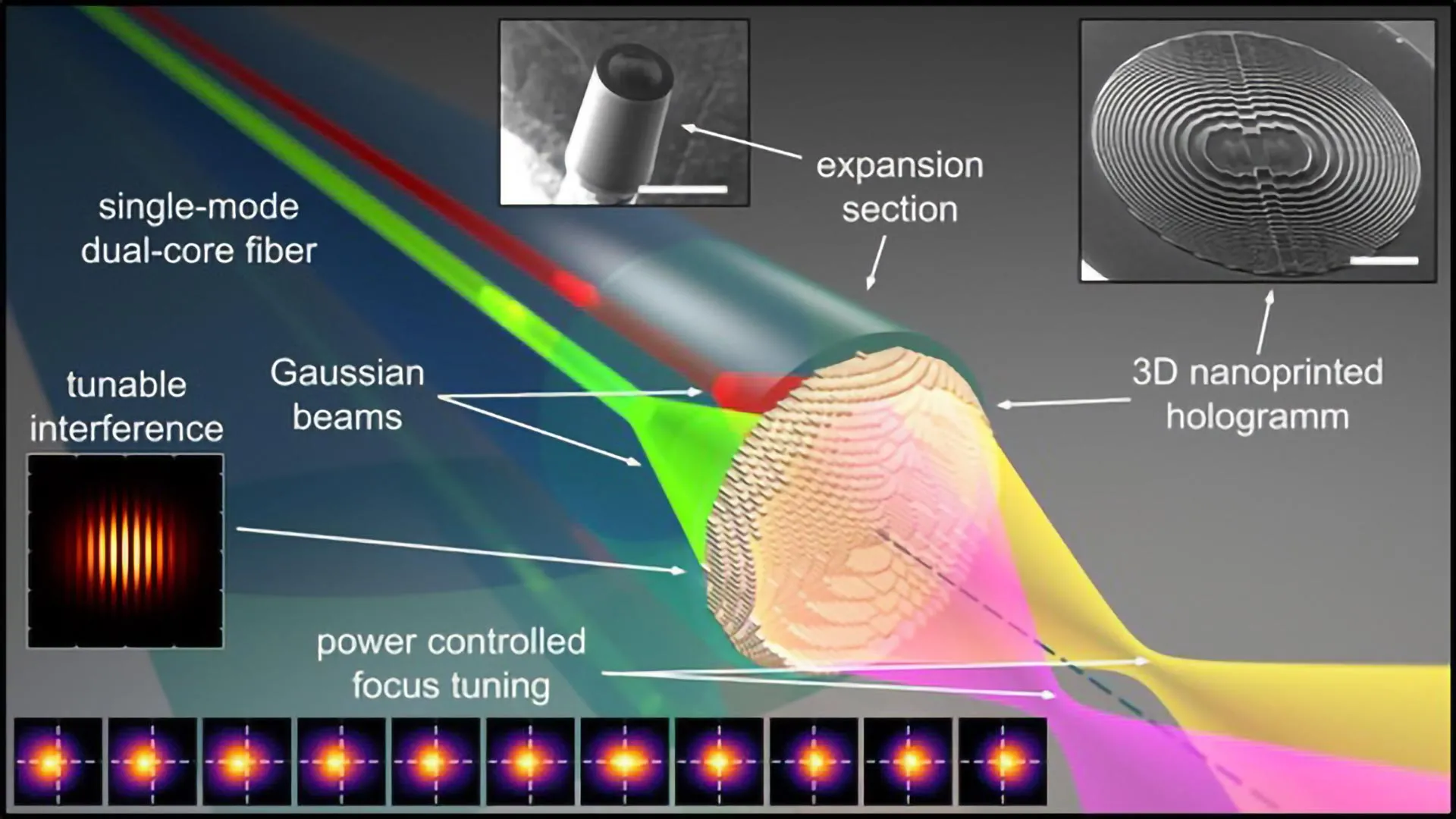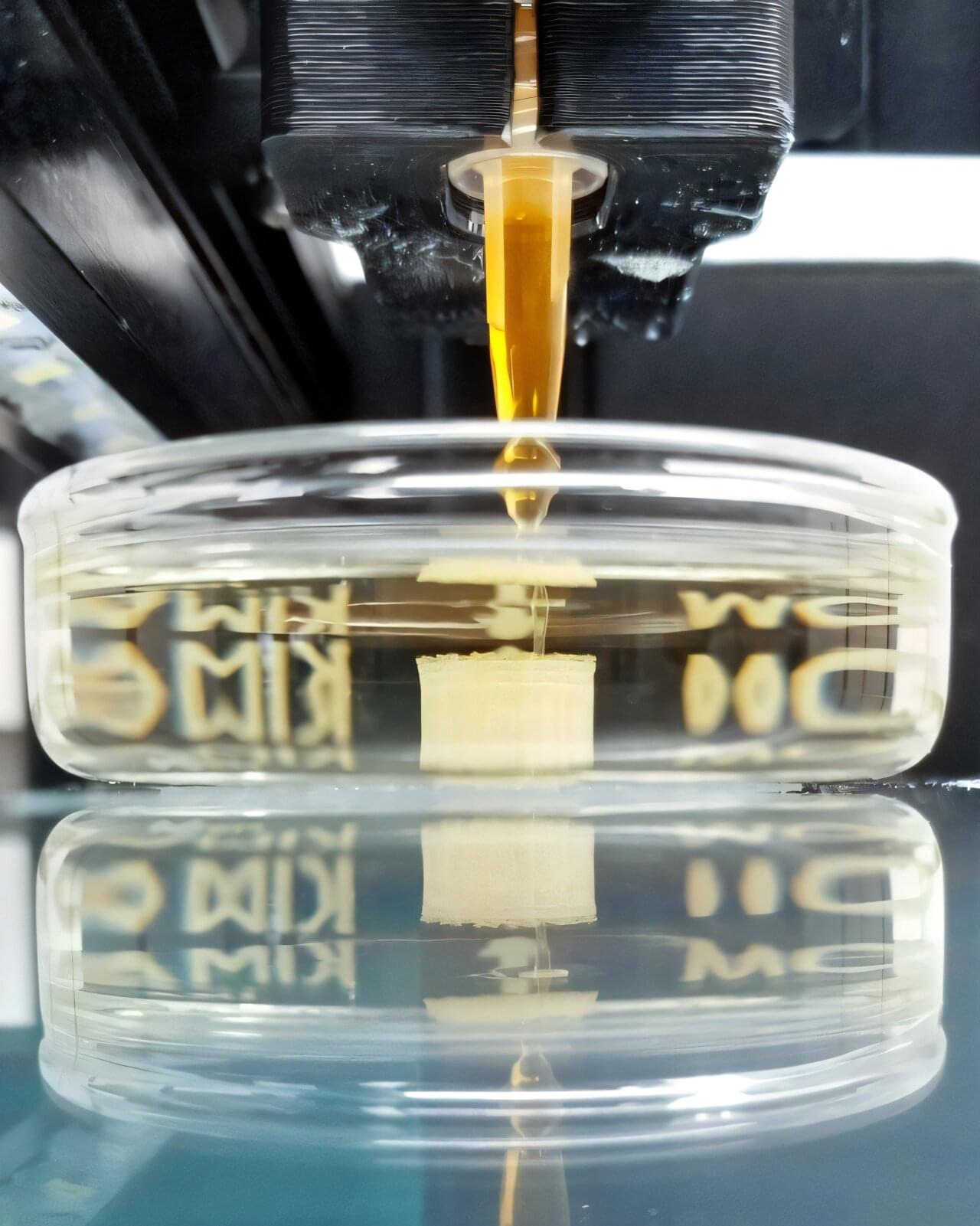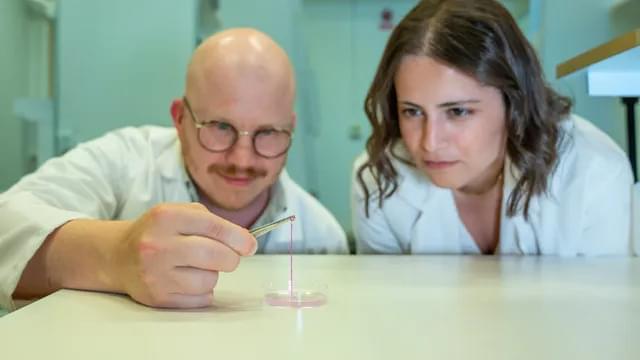In 3D bioprinting, researchers use living cells to create functional tissues and organs. Instead of printing with plastic, they print with living cells. This comes with great challenges. Cells are fragile and wouldn’t survive a regular 3D printing process. That’s why Levato’s team developed a special bio-ink, a mix of living cells and nourishing gels that protect the cells during the printing process.
With the advancements in bio-inks, layer-by-layer 3D bioprinting became possible. But this method is still time-consuming and puts a lot of stress on the cells. Researchers from Utrecht came up with a solution: volumetric bioprinting.
Volumetric bioprinting is faster and gentler on cells. Using cell-friendly laser light, a 3D structure is created all at once. “To build a structure, we project a series of light patterns into a spinning tube filled with light-sensitive gel and cells,” Levato explains. “Where the light beams converge, the material solidifies. This creates a full 3D object in one go, without having to touch the cells.” To do this, it is crucial to know exactly where the cells are in the gel. GRACE now makes that possible.






